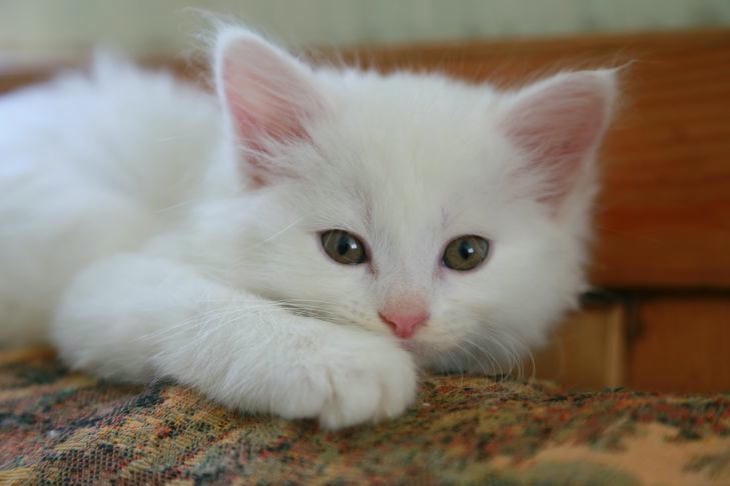Every cat owner has at least once encountered unusual behavior from their pet: gentle touches with the tongue suddenly give way to bites.
This common feline behavior has deep biological roots.
Natural instincts and social behavior
Cats' behavior is closely related to their wild ancestors. In the wild, licking is an important social ritual that helps animals establish bonds within a group.
When a domestic cat licks its owner's hands, it demonstrates affection and trust, including the person in its inner circle.
Overexcitation signals
A common cause of sudden bites is the animal becoming overexcited while being petted.

The nervous system of cats is very sensitive, and prolonged stimulation can cause a condition in which the pet loses control over its reactions.
At such moments, the defense mechanism is triggered, and the cat tries to stop the interaction in the simplest way - by biting.
Warning signs
Experienced felinologists note that before biting, a cat usually gives certain signals.
Twitching tail, flattened ears, dilated pupils - all these are signs that the animal is starting to feel discomfort. Ignoring these signals often leads to an undesirable reaction.
Features of tactile perception
Cats have specific areas on their bodies that, when stimulated, can cause conflicting sensations.
Prolonged petting can lead to tactile oversaturation, when pleasant sensations are replaced by discomfort. In such a situation, the cat may simultaneously enjoy the petting and feel the desire to stop it.
Playful behavior
Some cats perceive a person's hand as an object for play. In nature, the hunting behavior of cats includes a sequence of actions: tracking, capturing, biting.
When a pet licks your hand and then bites it, it may simply be trying to engage its owner in a game using natural instincts.
Stress and anxiety
Sometimes this behavior can be a sign of stress or anxiety. Domestic cats are very sensitive to changes in the environment.
New furniture, renovations, the appearance of other animals, or even rearrangement can cause anxiety in a pet, which manifests itself in contradictory behavior.
Territorial behavior
Licking can be a way to mark a person as its territory. When a cat licks its hands, it leaves its scent.
The subsequent bite may be an expression of possessive behavior—the animal is saying, “This is my person, and I am in control.”
For reference
A cat is a domestic animal, one of the most popular "companion animals"








